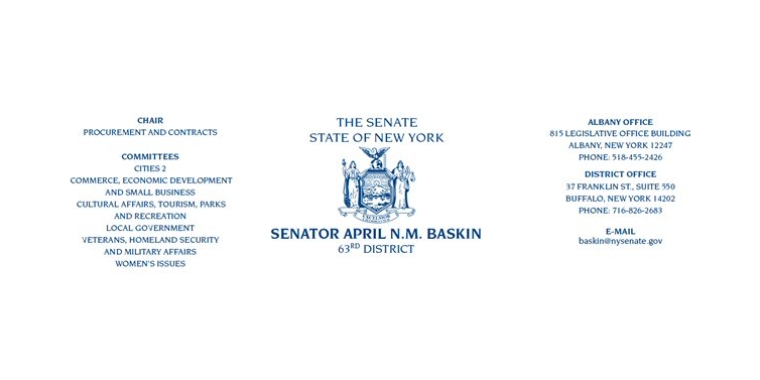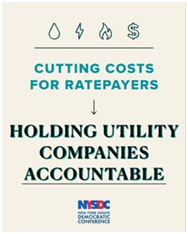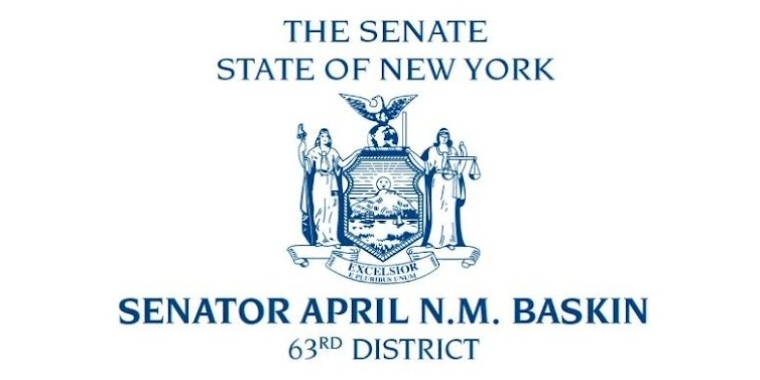
For Immediate Release
February 5, 2025

For Immediate Release:
Contact: Brenda Alesii
February 5, 2025
M: 716-861-7288
Albany Legislative Recap: January
With a new year and new session underway, Senator April N.M. Baskin and the Democratic Majority Conference opened the 2025 legislative season with critical packages that protect the rights of voters and uphold our democracy, strengthen New York’s reproductive freedoms and safeguard providers, and cut the cost of utilities for New York families.
Once again, the Senate Democratic Majority upheld its tradition of starting the session with a slate of voter protection bills that include protecting our elections from foreign interference, making automatic voter registration easier and more secure, improving BOE Commissioner training, and ensuring our voter rolls are as accurate and up to date as possible by allowing New York to join a multi-state voter list maintenance organization.
Protecting Reproductive Freedoms
As renewed efforts threaten to undo decades of hard-won reproductive freedoms, New York continues to lead the way on common sense protections for everyone seeking care. This year’s reproductive freedom package included key measures that would secure user health data by establishing data privacy standards, strengthen our shield laws so that providers are not targeted for serving their patients, expand access to contraception, establish a clinical training program for abortion care, and make sure abortion providers have the funding they need. This package also contains the long overdue step of restricting the use of harmful substances in menstrual products.
Cutting Costs for Ratepayers, Holding Utility Companies Accountable
As New York enters the coldest days of the year, the Senate Democratic Majority is fighting once again to cut costs for ratepayers while increasing oversight on utility companies. This included requiring the PSC to consider the economic impact of rate hikes, protecting customers from overdue charges and terminations while a utility is under investigation, limiting estimated billing, strengthening utility storm response compliance, establishing affordable payment plans for certain customers, and requiring the automatic re-enrollment of eligible ratepayers into the low-income home energy assistance program (LIHEAP).

|  |  |


